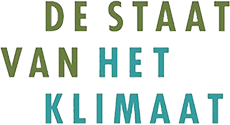I just received an email from Wouter Scheepens, who is working for Steward Redqueen, a consultancy firm in Haarlem that provides services focused at the interface of business and society. He alerted me to a review he wrote about my book. It’s a very positive review:
Last weekend I read Marcel Crok’s “The state of the climate”. Actually the book is in Dutch (De Staat van het klimaat – een koele blik op een verhit debat) and I’m not the first to conclude that this book deserves an English translation.
Why is the book a must read? First of all because Marcel Crok makes the facts talk and convincingly explains biases in the complicated climate debate. Moreover the debate is polarized; so called skeptics are labeled as “bad guys”. Crok states that it seems as if the ‘good guys’ showed ‘bad guy’ behavior – and proofs this with examples. He also clarifies that the polarization has resulted in wrong choices and the illusion of success in the climate debate. The focus on CO2 was a choice, he says, to avoid too much complexity. This was a strategy to push “climate” on the agenda of politicians and others. In terms of plugging the subject this has worked extremely well, however the oversimplification is hampering progress. Lots of money is wasted on a policy that is doomed to fail. The focus on mitigation instead of adaptation has proven to be poor and will be counterproductive.The book is very well written and Crok does not beat around the bush. He uses statements such as: “It is useless en endlessly inefficient to regard CO2 as the magic stick to influence many processes on earth”. But these are never empty words, he carefully guides you through a body of knowledge to proof his position. As we have stated often (for example), Crok also believes that apocalyptic views will not be productive. Focusing on CO2 (instead of issues such as land use) means that benefits can only be translated into vague results in the future. This will not help to make progress because for that also short term successes are crucial. Reading his book one knows it is time to follow a wise advise of Sioux Indians: “When you discover you are riding a dead horse, the best strategy is to dismount.”In his introduction Salomon Kroonenberg applauds Marcel Crok for telling this story on how it was possible that the world has been fooled to this extent. For me this book has proven to be a page turner, which is a remarkable accomplishment for a book on climate.One more thing: this is not the work of an ‘anti-environmentalist’. Quite the contrary: the book is the ultimate proof of the integrity and commitment of Crok. Because of his commitment to the environment he beliefs the world deserves a better “climate strategy”. I thank him for that.
CO2 train
I have received many nice emails from people who read my book and many were encouraging an English translation. However, so far, I did not get many invitations to speak at either government agencies or at companies. The problem is that although many people privately are willing to accept my thesis that there is too much focus on CO2 and on mitigation, the CO2 train seems to be unstoppable. Big companies just cannot ignore it, for example because they will be kicked out of a sustainability index like the Dow Jones Sustainability Index. The European Union will just continue with their Emission Trading System, even if there will be no international agreement for a post-Kyoto protocol. So both governments and companies in Europe seem to have passed the stage where they can still brainstorm freely about whether putting most of our money on reducing CO2 is the best choice.
So it is quite refreshing to see someone from this field (his firm will have influence on how companies and development banks deal with ‘sustainability’) being interested in one of the policy implications of my book, i.e. to focus less on mitigation, especially in the short term, and to focus more on adaptation. Most of my policy arguments by the way come from Roger Pielke’s excellent book The Climate Fix and the Hartwell Paper (of which Pielke was a contributor as well).



Iemand die nog een wetenschappelijk artikel van nabij heeft gezien beoordeelt je boek. Boeiend…
Maar wel handig als je graag bij companies wilt spreken.
Beste Marcel: Het kan zijn dat er nog een Fred Versteeg actief is, maar bovenstaande reactie is niet van mij afkomstig. Mijn naam is in hoofdletters. Benieuwd wie mijn naam gebruikt voor een reactie. En volgens mij had er waarschijnlijk ook nog eens ‘geen wetenschappelijk artikel’ moeten staan i.p.v. ‘een wetenschappelijk artikel’.
Wel een interesant geluid uit de wereld van de bedrijfsadvisering.
Beste Fred,
klopt, een dubbelganger :)
gr Marcel
Beste Marcel: En nou maar hopen dat een verdubbeling van de concentratie van Fred Versteegs geen invloed heeft op het discussieklimaat.